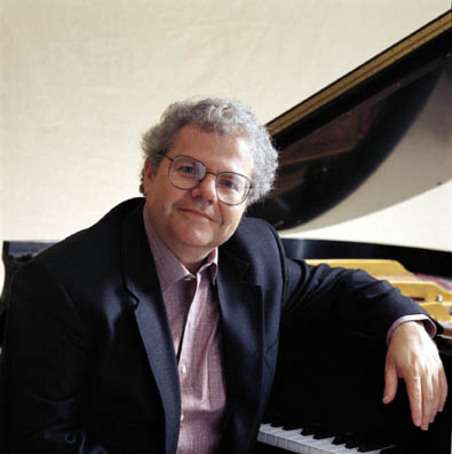|
Back
Memories of the Sublime New York
Alice Tully Hall, Lincoln Center Complex
02/27/2011 -
TullyScope Festival:
Franz Schubert: Four Impromptus, D.935 – Sonata in A major, D.664 – Sonata in B-flat major, D.960
Emanuel Ax (Pianist) 
E. Ax (© Sony Masterworks)
It is illogical to write the following: “Emanuel Ax played an all-Schubert recital last night at Alice Tully Hall”.
The paradox in the logic is that the sentence sets up two opposing objects: Emanuel Ax and Franz Schubert. The reality is that from his quick entrance, with hardly an acknowledgement to the full house, and the first notes of the F Minor Impromptu, Schubert and Ax became one.
No, we aren’t speaking of an actor “living” his role, but of a pianist breathing the notes and the essence of the composer. In other words, this stunning recital was, in its simplest term, Schubert.
Emanuel Ax is not an idiosyncratic pianist. Pauses and rubati, colors and lines are played from what is on the page, without exaggeration, without mannerism. But simply because Mr. Ax plays what is written, he is anything but cold or automatic. His comfort–for that is the word with Schubert–gives us comfort as well.
Obviously certain composers need more of the performer. A Beethoven or Scriabin or Schumann is made for the pianist’s partnership. But with Franz Schubert, whose music was rarely played in his lifetime except among friends, his innate beauty–rather than agony–should be shared by the performer. The performer need never abduct the notes for his/her own pleasure.
“When I play Schubert’s music,” said Mr. Ax, “I don’t feel the passing of time.” When he performed last night, time was notable for excising everything but the music.
I feel guilty going on. Schubert not only had “heavenly length” (in Schumann’s oft-used words), but adds nothing extraneous to his music, as I must do for this review. Some composers (Tchaikovsky is an example) shamelessly use fillers, musical cornstarch, when inspiration deserts them. Schubert’s “simplicity” simply means that what he dreamed is right on the paper.
Mr. Ax wasted no time in getting to the wonderful Impromptus which I still call Opus 142. His technique was shown in the third, with its difficult variations, and his sensitivity was in the final Divertimento.
But it was the second, in A-flat, that Mr. Ax, with barely use of the pedal to connect his tones, with apparently impeccable execution of the rapid passages, gave us that “simple” Schubert, tender, dreaming, wistful, quite perfect.
The late A Major Sonata was played like Mozart. That is, Mr. Ax played with such charm and limpidity that in the moment of Schubert surprise–going suddenly into the major at the end of the second movement–it seemed, like a sunrise over a Guatemalan volcano, to be both radiant and natural at once.
Only in the last and greatest of Schubert’s sonatas, the one we used to call “Posthumous.” Here was Schubert the enigmatic, where the most majestic opening is stopped by rolling thunder, where a second movement has the aroma of roses, and sometimes breathes the flower of death, the lily.
Mr. Ax knows that silence is part of sound, and his pauses, his retardations, his challenge to play timelessly until the end, were wonders.
This was not a overly warm performance, but Mr. Ax on the piano has never had to ingratiate himself. His fingers do that for him. And after the last wild bars of the B Flat Sonata, he wisely chose not to play a single encore.
Any further music would be like serving Jello after Beluga caviar. As an artist with the finest taste, now at the height of his powers, Mr. Ax knows that sublime memories must linger the longest.
Harry Rolnick
|